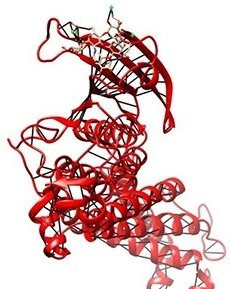Allergy and Infectious Diseases
Our work includes the basic biology of infective organisms, with a recent focus on Helicobacter pylori, with pharmaceutical applications.
Projects funded by the EPSRC Centre for Doctoral Training in Advanced and Targeted Therapeutics have focused in this area to exploit molecules used by Helicobacter pylori as potential new generations of drug delivery vehicles with increased gastric retention times. This work also enables new strategies to improve antibiotic therapy of Helicobacter infection, which is becoming more difficult to treat due to antimicrobial resistance. Researchers within the Division of Molecular Therapeutics and Formulation were the first to elucidate the three-dimensional structure of BabA, a key adhesin used by Helicobacter pylori to attach to the gastric epithelium (Science Advances 2015: Vol. 1, no. 7, e1500315).
Other work focuses on the use of humanised basophil reporters for diagnosis of specific IgE in parasitic infection (Schistosoma mansoni and Echinococcus spp.) and allergy, with the aim to improve allergy diagnosis and anti-helminthic vaccine safety, and the assessment of kinases as a new target for Schistosoma mansoni treatment. We also work on improved in vitro models of gut epithelia, polymers which interfere with bacterial Quorum Sensing or inflammatory responses, and materials which sequester specific pathogens as novel non-biocidal antibiotics. Current funding comes from the EPSRC, CAPES, the Dr Hadwen Trust (DHT) and the Rosetrees Trust.
Key contacts:

3-D structure of blood group antigen binding adhesin (BabA) from
Helicobacter pylori binding to its physiological carbohydrate ligand LewisB